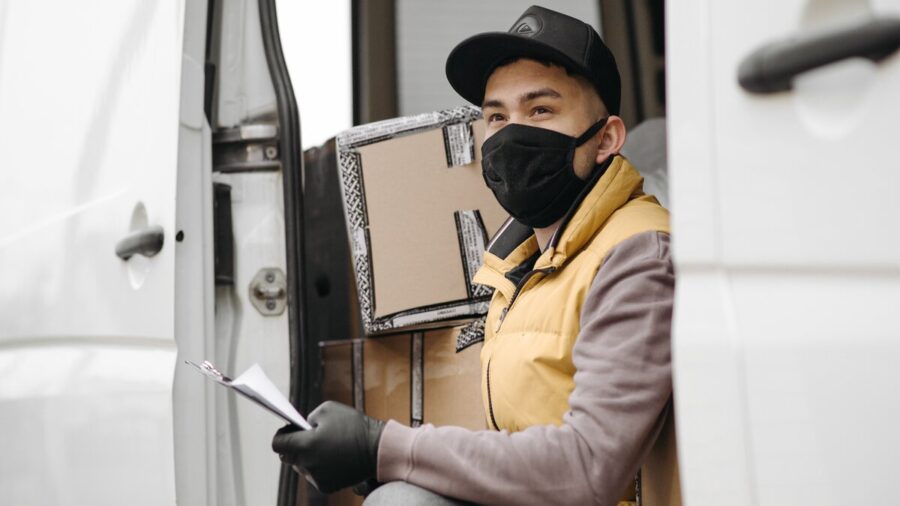
Last July, the state of Colorado introduced a retail delivery fee, levying $0.27 on every order delivered by a motor vehicle if an item included in the order is also subject to the Colorado sales tax. Earlier this year, Minnesota followed suit, enacting its own retail delivery fee.
It was a simple change but one that hinted at the vast network tax complexities that sit beneath the surface of an evolving and increasingly connected marketplace.
As consumers flock towards digital platforms to buy products and services, retailers across sectors are gaining a valuable foothold in new global markets and basking in boosted sales. But while business booms, merchants and marketplaces must get to grips with the shifting tax rules that follow - and quickly.
“What Minnesota and Colorado, and eventually other states and other countries around the world, are doing is implementing legislation and taxes on delivery fees because of the boom in ecommerce,” says Sacha Wilson, senior director at Avalara. “Ultimately, every country will have its own new regulations, so if you want to be efficient as a retail business, you need to be on top of tax compliance from the outset,” he continues.
Shoppers and retailers are adapting their practices in step with the opportunities that ecommerce provides, and regulation should remain a critical consideration. The trend towards subscription commerce is an example of this. Along with the promise of recurring revenue, these models are bound up in an entirely new set of sales tax compliance requirements, particularly for retailers that sell subscriptions overseas.
“If you sell digital goods, doing so via a subscription model can change those products into an ongoing digital service, which alters the tax rules surrounding them,” Wilson explains. “Resolving tax issues after the event can be incredibly expensive, leaving you paying backdated taxes, and, potentially, penalties and interest as well.”
Taxing the metaverse is still a grey area, but consultations are taking place among governments, and there is no doubt that change is coming
Changing tax policies are an inevitable response to growing trends and technological developments. And the expanding metaverse is no exception. The sale of non-fungible tokens (NFTs), which can range from digital artwork to virtual fashion items, triggered a host of questions about the logistics of taxing in a virtual plain. Last year, Washington and Pennsylvania became the first US states to tax the sale of NFTs. Other states are likely to join the club in 2023.
Some NFT creators have begun adding physical goods as well as virtual goods and services to their NFT offerings, adding another layer of complexity to decisions around which transactions would be subject to sales and use tax and how the jurisdiction of each order is defined.
The precedents set in this new arena have ramifications beyond the NFT market. Many traditional retailers, including luxury brands, are adopting metaverse technology to boost sales, using augmented reality (AR) to allow customers to try on luxury fashion items virtually.
Even Cartier has joined the metaverse, creating a virtual timeline of its prestigious Tank watch, from its 1917 launch to the present-day Tank Française, which people can ‘try on’ via Snapchat-powered AR.
“Taxing the metaverse is still a grey area, but consultations are taking place among governments, and there is no doubt that change is coming,” says Wilson. “As retailers incorporate more of these new world technologies in their sales strategies, it is something they need to be aware of.”
The global trend toward more vigorous tax enforcement has increased the need to focus on mitigating compliance risks. Wilson points to the value of automated tools and tax solutions, including those offered by Avalara, that prevent additional tax compliance, duties, and cross-border tariffs from becoming barriers to global business growth.
“Successful businesses are constantly testing the market, and there are so many new channels and technologies to experiment with,” he says. “The metaverse is new, and it’s growing in popularity. Brands are using 3D gaming platforms to engage with customers. But they need to be anticipating changes in tax rates, rules and complexity. It’s about being prepared.”
For more information visit avalara.com/eu

Last July, the state of Colorado introduced a retail delivery fee, levying $0.27 on every order delivered by a motor vehicle if an item included in the order is also subject to the Colorado sales tax. Earlier this year, Minnesota followed suit, enacting its own retail delivery fee.
It was a simple change but one that hinted at the vast network tax complexities that sit beneath the surface of an evolving and increasingly connected marketplace.
As consumers flock towards digital platforms to buy products and services, retailers across sectors are gaining a valuable foothold in new global markets and basking in boosted sales. But while business booms, merchants and marketplaces must get to grips with the shifting tax rules that follow - and quickly.

